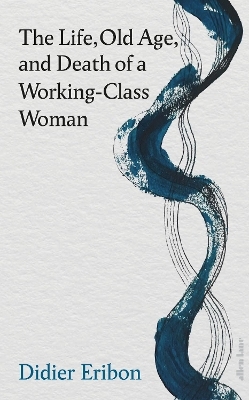
The Life, Old Age, and Death of a Working-Class Woman
Seiten
2025
Allen Lane (Verlag)
978-0-241-68672-0 (ISBN)
Allen Lane (Verlag)
978-0-241-68672-0 (ISBN)
- Noch nicht erschienen (ca. März 2025)
- Versandkostenfrei innerhalb Deutschlands
- Auch auf Rechnung
- Verfügbarkeit in der Filiale vor Ort prüfen
- Artikel merken
A meditation on the social political and philosophical questions of ageing
A few years ago, Didier Eribon’s mother began to lose her physical and cognitive autonomy. After several months of resistance, Eribon and his brothers were compelled to place her in a nursing home. A few short weeks later, his mother passed away.
In The Life, Old Age, and Death of a Working-Class Woman, Eribon continues the historical, political and personal reflection he began with Returning to Reims, this time turning his attention to the end of life. Tracing his mother’s rapid decline, and drawing on works by Simone de Beauvoir, Norbert Elias, Annie Ernaux and Michel Foucault, among others, Eribon transmutes his rage, sadness and the shame over her death into a strikingly nuanced portrait of the woman who raised him. Here, Eribon asks: how does our society treat the elderly? What is the place of bodies that can no longer assemble, discuss freedom or protest? Can the completely dependent speak for themselves – and if not, who can speak for them?
An honest, original and wide-ranging exploration of the relationship between ageing and class, politics and literature, this is a profound meditation on a fundamental human experience, too often overlooked.
A few years ago, Didier Eribon’s mother began to lose her physical and cognitive autonomy. After several months of resistance, Eribon and his brothers were compelled to place her in a nursing home. A few short weeks later, his mother passed away.
In The Life, Old Age, and Death of a Working-Class Woman, Eribon continues the historical, political and personal reflection he began with Returning to Reims, this time turning his attention to the end of life. Tracing his mother’s rapid decline, and drawing on works by Simone de Beauvoir, Norbert Elias, Annie Ernaux and Michel Foucault, among others, Eribon transmutes his rage, sadness and the shame over her death into a strikingly nuanced portrait of the woman who raised him. Here, Eribon asks: how does our society treat the elderly? What is the place of bodies that can no longer assemble, discuss freedom or protest? Can the completely dependent speak for themselves – and if not, who can speak for them?
An honest, original and wide-ranging exploration of the relationship between ageing and class, politics and literature, this is a profound meditation on a fundamental human experience, too often overlooked.
Didier Eribon is a prominent French sociologist and author on matters of social class, identity, sexuality and rebellion. He is internationally renowned for his biography of Michel Foucault and his groundbreaking memoir Returning to Reims.
| Erscheint lt. Verlag | 18.3.2025 |
|---|---|
| Übersetzer | Michael Lucey |
| Verlagsort | London |
| Sprache | englisch |
| Maße | 138 x 222 mm |
| Gewicht | 500 g |
| Themenwelt | Literatur ► Biografien / Erfahrungsberichte |
| Sachbuch/Ratgeber ► Gesundheit / Leben / Psychologie ► Lebenshilfe / Lebensführung | |
| Studium ► 1. Studienabschnitt (Vorklinik) ► Histologie / Embryologie | |
| ISBN-10 | 0-241-68672-5 / 0241686725 |
| ISBN-13 | 978-0-241-68672-0 / 9780241686720 |
| Zustand | Neuware |
| Informationen gemäß Produktsicherheitsverordnung (GPSR) | |
| Haben Sie eine Frage zum Produkt? |
Mehr entdecken
aus dem Bereich
aus dem Bereich
Zytologie, Histologie und mikroskopische Anatomie
Buch | Hardcover (2022)
Urban & Fischer in Elsevier (Verlag)
54,00 €


